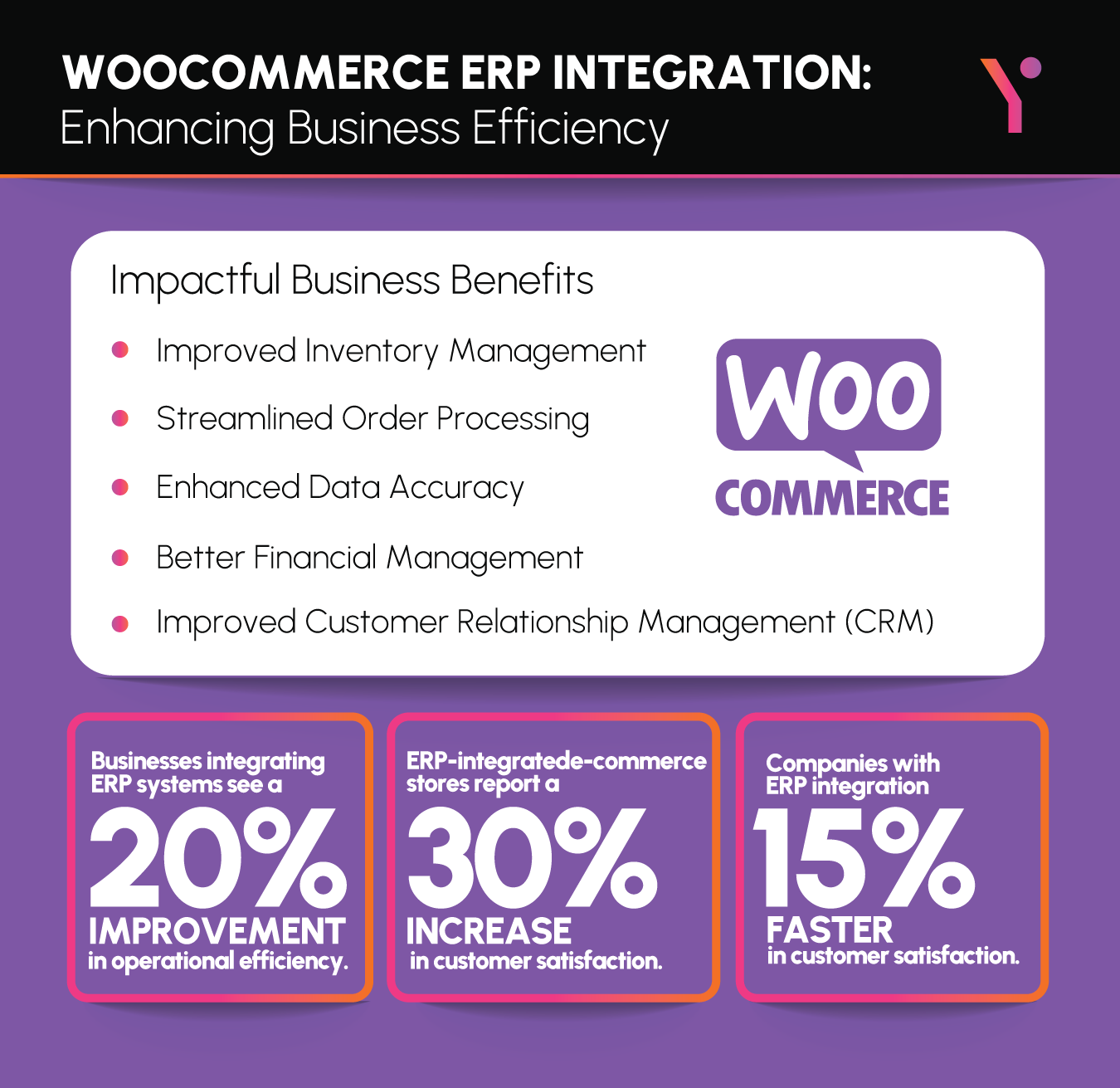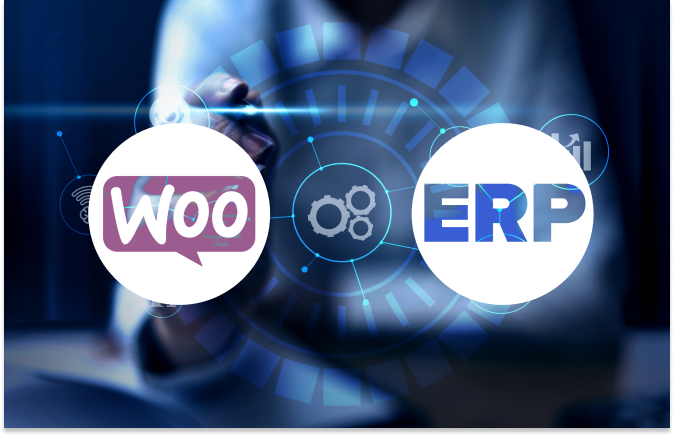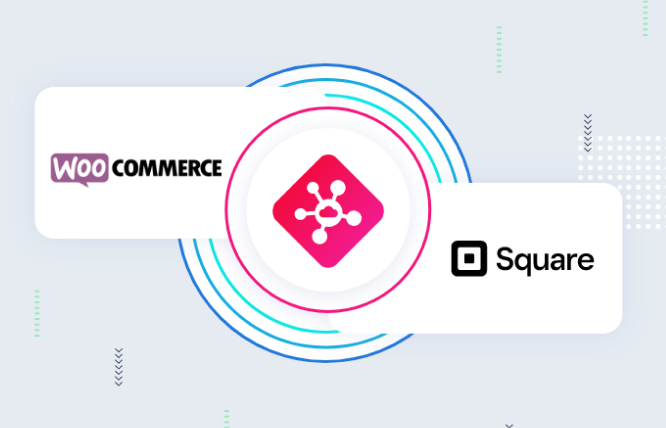Introduction
This blog explores how integrating WooCommerce with an ERP system can boost business efficiency. It covers essential steps, tools, and FuturByte’s approach to creating seamless, effective integrations.
If you own an e-commerce business, at some point, you have to make things go as smoothly as possible. However, as the business expands, all aspects, such as order, stock, and customer details Management, become complex. That is where WooCommerce ERP integration comes in to help ease the process. When using WooCommerce in conjunction with an ERP system, a lot of activities that would otherwise take a lot of time and effort can be handled automatically. This means less paperwork, fewer chances of errors, and, hence, an enhancement of the overall performance of the business.

Why WooCommerce and ERP Integration is Essential
If you are carrying out operations in a manual way or with different systems that are not linked, then you are living in shady times. What it can offer is a consolidated display of the orders, inventories, customers, and virtually everything a WooCommerce-based store needs. This integration streamlines your workflow, reduces errors, and frees up time for you and your team to focus on what really matters.
Here is the key to major success in growing your business.
Just consider ordering without the need to swap between several applications. When it comes to integrating ERP and WooCommerce, you are able to attain real-time visibility right across the company. This does not only improves efficiency but also enables you make timely decisions. For instance, if your stock is getting low, the system will alert you and you can order for more to avoid running out of stock and this kills sales.
Top ERP Systems Compatible with WooCommerce
Actually, ERP systems vary from one another, and selecting the right ERP for your WooCommece store is of great importance. Below is a list of the best ERP software that is compatible with WooCommerce;
Odoo ERP
Odoo is one of the most well-liked solutions for businesses that seek affordable and versatile ERP systems. It provides a number of modules that address such processes as inventory management, customer relationship management, etc. The best part? The integration of Odoo with WooCommerce is quite easy; thanks to the interface, you are ready to synchronise orders, products, and customers. This ERP software for WooCommerce is amazing for firms who are looking for perfect solution but do not want to pay a huge amount of money.
SAP Business One
SAP Business One is a strong business management solution made for small to middle businesses. Coupled with WooCommerce, you end up with a tool that can meet the requirements of complex business operations. The WooCommerce ERP integration with SAP Business One allows you to track your sales, manage your inventory, or even handle your finances, knowing you are getting a solution that grows with you. Also, the data updates in real-time assist you with sales fluctuations and even stockpiling.
Microsoft Dynamics 365
Microsoft Dynamics 365 is another perfect example of an ERP system that is compatible with WooCommerce. It has integrated CRM and ERP, which makes it possible to get a complete picture of your business processes. From sales to customer support, from finance to operations- ERP and WooCommerce can integrate all these features in one place. This integration is suitable for firms that require a flexible solution with additional analytical and reporting capabilities.
NetSuite ERP
NetSuite ERP’s reputation arises in it as a cloud-based solution ideal for growing e-commerce businesses. WooCommerce NetSuite ERP integration enhances business processes and effectively controls and optimises areas such as order fulfillment and inventory. It is a complete container of tools that contributes to the effective management of your business since it provides real-time data on sales and stock, for example. If you want to find an ERP solution for WooCommerce that can handle the growth and development of your business, consider choosing the NetSuite.
Popular WooCommerce ERP Integration Tools
Integrating WooCommerce into an ERP system can be quite complex, and therefore, it needs to be done appropriately with the correct tools. This intermediates between your online store and your ERP system, minimising the risks of data leakage and errors. Let’s now look at the top WooCommerce ERP integration tools that can be useful for your business.
ZapERP
ZapERP is a universal tool that connects WooCommerce to the ERP system, which makes the process extremely easy. It includes tools for inventory management, order processing, and integration with accounting systems, among others. ZapERP also allows synchronising WooCommerce store multiple ERP solutions, making it easy to operate a business from a single interface. This tool is most appropriate for SMEs who are seeking a reasonably priced WooCommerce ERP integration plugin.
Webgility
Webgility is yet another tool that was developed to integrate ERP and WooCommerce. It integrates your WooCommerce store with reliable ERPs like QuickBooks and NetSuite, and it deals with the processing of orders, inventory, and finances. The most prominent advantage of Webgility is that the software offers business analytics, so you get comprehensive data on your performance. This authorises you to monitor the sales activities with a view to improving your operations, hence allowing you to be relevant in the market.
TradeGecko
TradeGecko has now merged with QuickBooks Commerce and is a great tool that provides ERP tools to Woocommerce. It is most suitable for companies which require elaborate inventory control and order handling facilities. It also offers solutions such as Multi-Channel Listing, Auto-Order, and Inventory Sync as well as real time reports. This WooCommerce ERP integration informs you of the available stocks and tracks their availability so you cannot sell items that you do not have; therefore, there are lower return rates from customers.
WooERP
WooERP is tailor-made for WooCommerce stores, making WooERP one of the most essential tools for WooCommerce stores and ERP integration. It is also compatible with different ERP platforms, which allow for real-time data exchange between the WooCommerce store and the ERP software. Everything from order handling to customer relationship solutions is possible and can be done under WooCommerce systems with WooERP. As to the weaknesses, this tool is one of the best choices for those who are seeking an easy-to-implement, efficient solution.
How to Integrate WooCommerce with an ERP System
Typically, an integration between WooCommerce and an ERP system could seem like a massive chore, but it is not. This can greatly enhance your business performance, improve the organisation process, and provide you with more authority over the information you use. On integrating WooCommerce with an ERP system you are able to automate right from inventory to order management, which in turn saves time and effort.
The primary stem of any integration process is comprehension of your business requirements and contemplation of the proper ERP system and integration instrument. After selecting these, the idea is to follow a well-defined procedure to enable the entire system to be as smooth as possible.
Step-by-Step Integration Process
- Assess Your Business Needs: To get started, assess what you want from an ERP solution. Such aspects may include handling inventories and ordering systems, handling customer information and data, and preparing reports. This will enhance your understanding of requirements, which will help you select the right ERP software and integration tool.
- Choose the Right ERP System: Depending on your business requirements, choose an ERP system that is compatible with WooCommerce. Sage 100, Sage 300, Odoo, SAP Business One, Microsoft Dynamics 365, and Net Suite are the best ERP systems to use. Ensure that the system you choose has the features you need to achieve your goals.
- Select an Integration Tool: Select a WooCommerce ERP plugin or tool that integrates WooCommerce with the business’s ERP system. Some of the tools that can be used for easy integration are ZapERP, Webgility, TradeGecko, and WooERP among others.
- Install and Configure the Plugin: Several integration tools are available. You must select one that is appropriate to your WooCommerce store and then download and install it into the store. Accept the plugin’s steps and guidelines for parameters such as API keys, data synchronisation, and automated procedures.
- Map Your Data: However, before you sync the two platforms, ensure that the data within WooCommerce is mapped to the ERP system correctly. This includes creating connections between products, orders, customers, and inventory in both systems so that the two are similar.
- Test the Integration: Perform a sequence of tests to verify that everything is properly integrated. Make sure WooCommerce integrates in real-time with its ERP system in terms of orders, inventory, and customer data.
- Go Live: Finally, when the platforms are up and running you have tested the integration, and everything seems to be okay, then go ahead and fully integrate the platforms. Ensure that you keep a close look at the system, especially in the first few days after its implementation, in case you realise some problems to sort them out.
- Ongoing Monitoring and Support: Specifically, to incorporate a new system successfully, the following tips have been proposed: Maintenance checks guarantee that the firm stays effective, and you can change it whenever necessary due to the continuous growth of the firm.
How FuturByte Approaches WooCommerce ERP Integration
WooCommerce ERP integrations are totally personalised. Every business might not require the flexible integration of WooCommerce with an ERP system in the same way. To be more specific, our approach is targeted at the requirement of your business processes as more effective and less time-consuming.
- Customised Solutions: We start with extensive client consultation to gain a clear insight into the client’s business needs. If you need complex inventory management, fast and effective order management, or increased capabilities in customer data management, we develop specific integration scenarios for your business.
- Selecting the Best Tools: Following the business objectives of your entrepreneurship, we present the most effective ERP solutions for WooCommerce. Some of these include scalability, ease of use, and how it integrates with other systems to give you the best outcome.
- Seamless Implementation: Our team integrates everything, including installing necessary tools, configuring, mapping data, testing, and everything else. We work towards a seamless process that produces few interferences to your constant business workflow.
- Ongoing Support and Optimisation: After that, integration requires constant and prolonged assistance to ensure that things go well. We also provide system optimisation to guarantee that your WooCommerce ERP is still functional and efficiently responsive to your business’s later growth.
FuturByte guarantees that you will derive optimum benefits from your WooCommerce store through its integration with a suitable ERP. This will not only help increase your business’s efficiency but also offer you a strong foundation upon which your business could build in the future.
Conclusion
The future of e-commerce is getting complex. As time goes on, combining WooCommerce with an ERP system will become even more essential for businesses. This integration not only streamlines operations but also helps businesses stay competitive in the market. By using the right tools and strategies, you can continue to evolve and stay ahead, ensuring long-term success.
Frequently Asked Questions
eCommerce ERP integration links your online store with an ERP system, automating tasks like inventory management, order processing, and customer data handling.
Yes, you can connect WordPress to an ERP system using plugins or integration tools that sync data between your website and the ERP.
Yes, WooCommerce can be integrated with an ERP system to streamline your business processes, improve efficiency, and automate key tasks.
Have questions or feedback?
Get in touch with us and we‘l get back to you and help as soon as we can!




